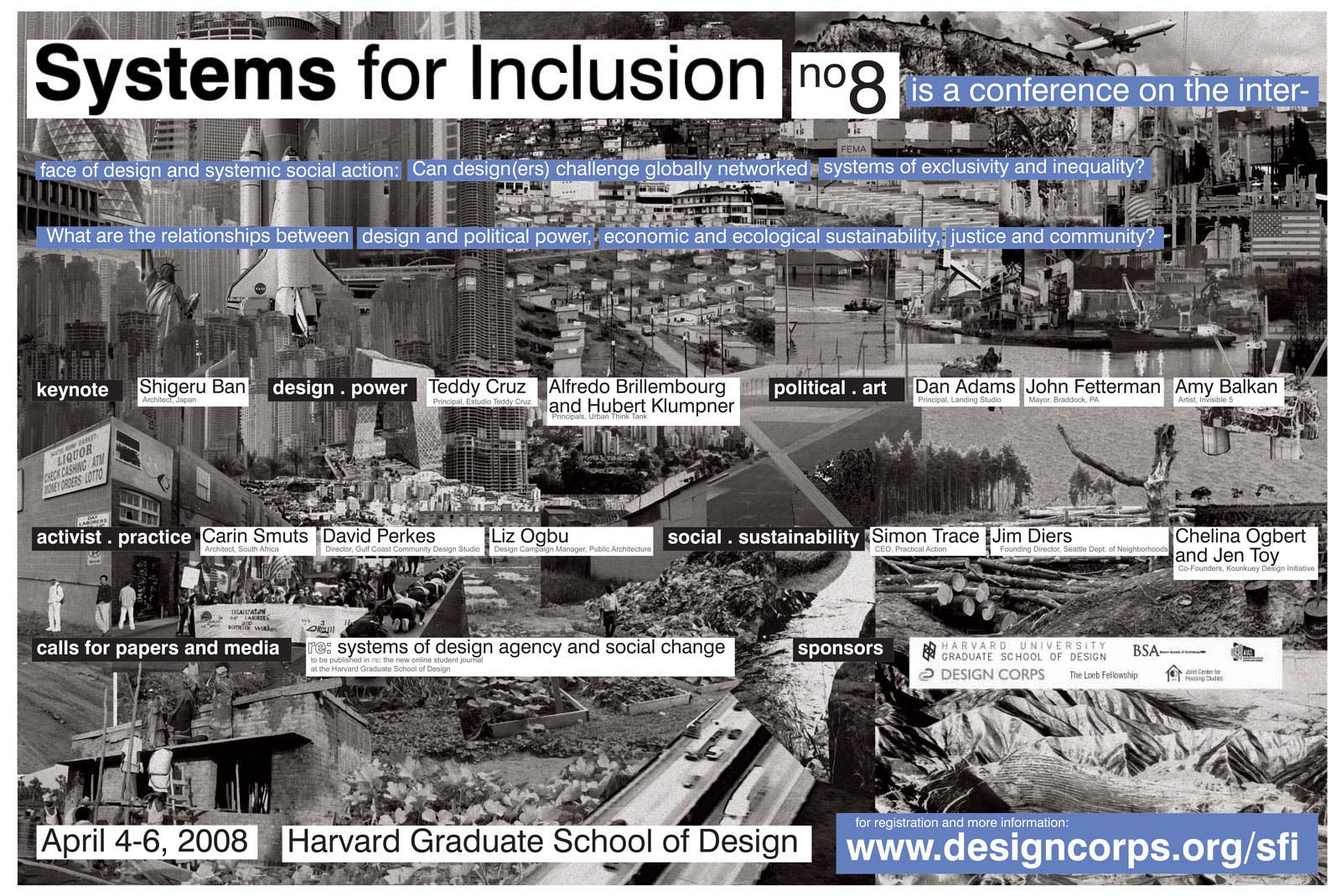SFI 8: SYSTEMS FOR INCLUSION
April 4-6, 2008 | Cambridge, MA
Design Corps, in association with Harvard University’s Graduate School of Design, announces the eighth offering of the annual Structures for Inclusion (SFI) conference series. Entitled “Systems for Inclusion,” SFI8 explores the interface of design and systemic social action: Can design(ers) challenge globally networked systems of exclusivity and inequality? What are the relationships between design and political power, economic and ecological sustainability, justice and community?
Targeted at students and young professionals who want to move beyond a purely aesthetic discussion–who see landscape/architecture and urban planning/design as an integrative and interconnected project–the conference seeks to jumpstart a new conversation about the social dimensions of the natural and built environments. The event will be hosted by the Harvard University Graduate School of Design.
“While planning this conference we talked to students nation-wide and there is a re-emerging trend today among students to talk about more than just form,” notes Ashley Heeren, GSD student president and conference co-chair. “Young designers tend to see social responsibility as very important and want new models for design practice that connect activism with quality design.” Since the first SFI was held at Princeton in 2000, SFI conference series have focused on: 1) to showcase community-based design efforts that reach out to and serve a diverse clientele; and 2) to provide information on alternative career paths available to students and young designers. The interdisciplinary group of students from Harvard University’s Graduate School of Design and the Massachusetts Institute of Technology who collaborated with Design Corps in planning SFI8 changed the name from “Structures” to “Systems for Inclusion” specifically to address how design interrelates to other fields such as public policy, environmental justice and social entrepreneurship. Speakers include designers, politicians, government officials, artists and students who have pioneered innovative methods for social change.








